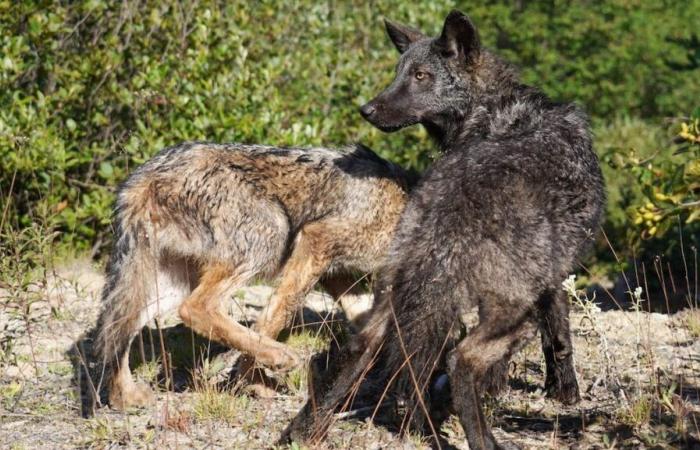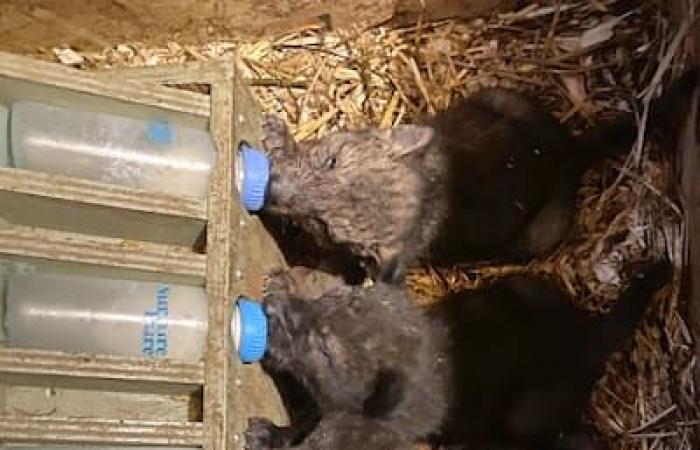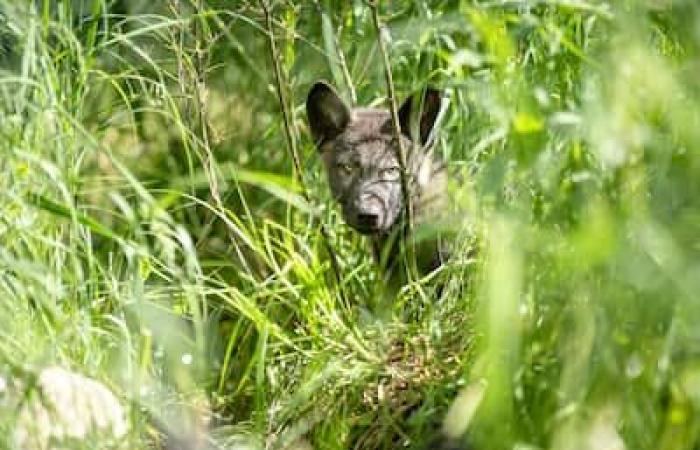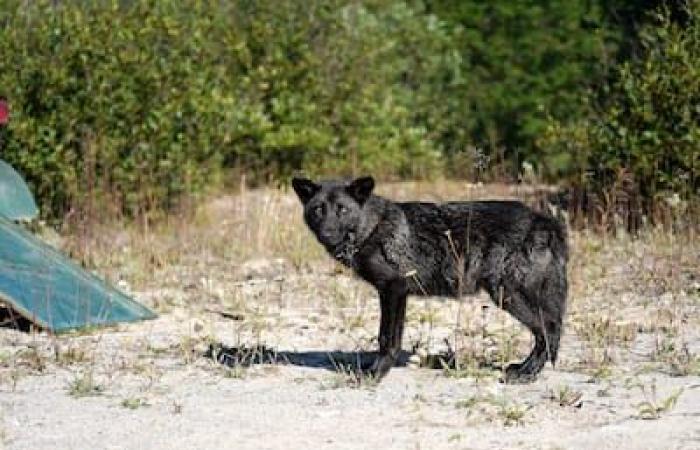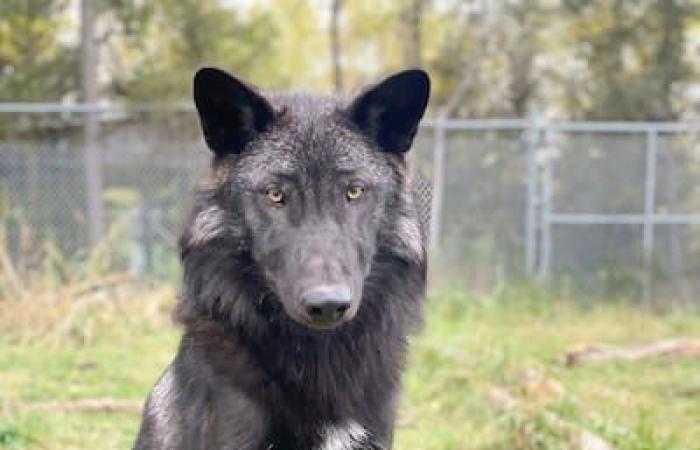Little orphaned cubs abandoned in their den have been reintegrated into their natural environment and the Quebec organization behind this success is the first to achieve this.
“We searched the literature to validate our protocols, but we found nothing. It has already happened that coyotes have been rehabilitated, but they are very different from wolves,” explained Marie-Frédérique Frigon, communications representative and head of the nursery for the Pageau shelter.
Last May, 9 crying cubs were discovered in a den in the middle of a wood in Abitibi. With no news from the mother after three days of camera surveillance, the death of one of the cubs pushed the man who had found the litter to intervene.
The young cubs on their first day at the Pageau shelter on May 5, 2024 when they were found abandoned in their den.
PHOTO PROVIDED BY Marie-Frédérique Frigon
“The person used her son's remote-controlled car to go see the Cub Scouts, he was too big to be able to go there, so it was his sons who made it possible to get the litter out,” added Ms. Frigon.
Once the litter was in the hands of the shelter, a multitude of measures to avoid any positive contact between the caregivers and the 8 surviving cubs were put in place.
From bottle holders to feed them, to weaning through traps, including transition rooms for cleaning animal enclosures.
The young cubs on their 6th day at the Pageau shelter in May 2024 when they were found abandoned in their den.
PHOTO PROVIDED BY Marie-Frédérique Frigon
Everything has been thought of to limit the socialization of the little wolves who were only two and a half months old when they arrived.
Reintegration in kind
The staff thought long and hard about what to do next and reintegration in kind into their original pack proved to be the best solution.

One of the little cubs during an outing in an enclosure in the summer of 2024. PHOTO PROVIDED BY Marie-Frédérique Frigon
PHOTO PROVIDED BY Marie-Frédérique Frigon
“It is thanks to the valuable help of Pierre Fournier, a retired wildlife technician, who studies wolf packs in the territory that we were able to plan their reintegration,” she added.
Last August, at the age of 4 and a half months, 7 of the 8 wolves that had been taken care of by the shelter were able to be released.
A few months later, the staff at the Pageau Refuge are delighted to see that the young wolves have joined the other wolves in their pack which already occupied the territory.
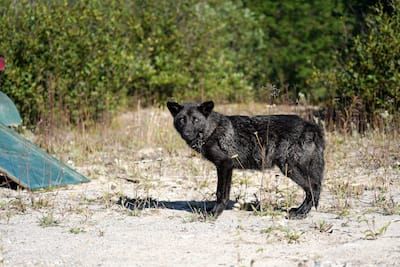
One of the wolves during the release in the summer of 2024. PHOTO PROVIDED BY Marie-Frédérique Frigon
PHOTO PROVIDED BY Marie-Frédérique Frigon
“There are stories like these that make us really proud, these are rare cases, the other cases where wolves had been reintegrated into their environment were in territories where there were no packs,” added Marie-Frédérique Frigon.
The little solo
All the wolves were returned to their environment, except one, little Zizitop quickly became friends with the staff of the establishment for a reason still unknown.
“It was when we transferred them to a larger enclosure that we realized his character. While all the other wolves were afraid of us, there was Zizitop who lay on his back and wanted our attention,” she added.

The Zizitop wolf who has taken a liking to the nursing staff and who has been attracting visitors for several weeks. PHOTO PROVIDED BY Marie-Frédérique Frigon
Photo provided by Marie-Frédérique Frigon
The young wolf had to be separated from the pack so as not to negatively influence the development of his brothers and sisters. For him, there was no chance of survival in the forest; the only option was to integrate him with the other animals in the shelter.
It has already become a very popular attraction and continues to operate in an environment that ensures its safety.

